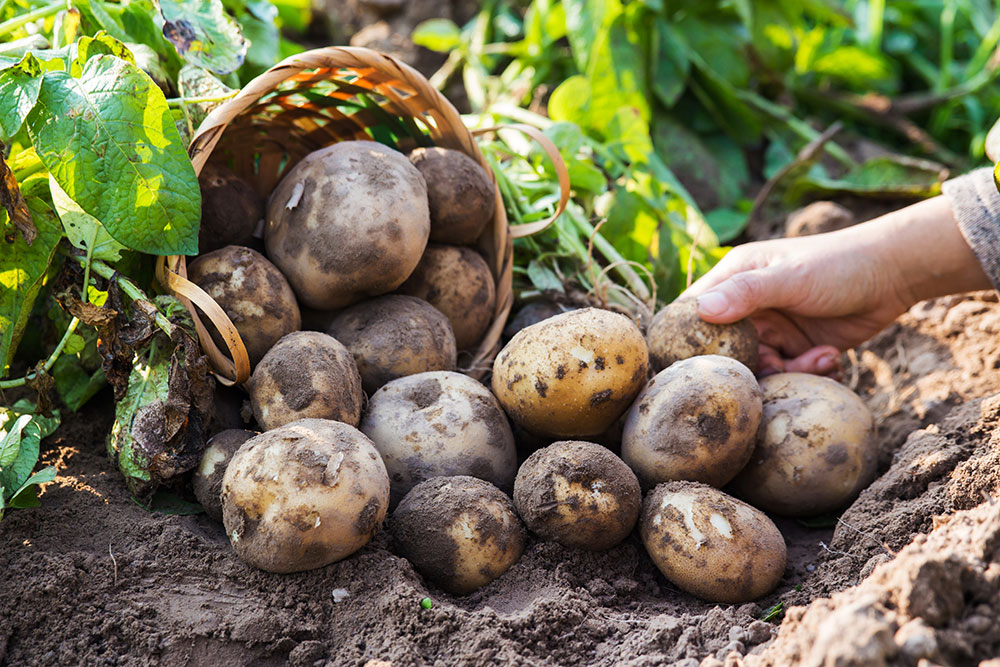
05 Mar The Benefits of Buying Local – Why You Should Support Organic Farms and Small-Scale Food Producers
WHY YOU SHOULD SUPPORT ORGANIC FARMS AND SMALL-SCALE FOOD PRODUCERS
The subject of food can be a contentious one. Soccer moms will swoon over the latest superfood (be it kale, quinoa or cockroach milk) while sweating out their strawberry and spinach smoothie during spin class. Hipsters, and their conceited counterparts, like to compete over the origin country of their coffee, gluten-free peanut butter or craft beer.
People will go to great lengths for what they believe are the best and freshest ingredients. It’s all about getting the trendiest product, even if it comes at the expense of the planet.
But as we rush to our favourite grocery store chains to get the ripest Turkish figs, our local farmers and food producers suffer. As a matter of urgency, I am going to stress why opting to buy your fresh produce from the family-owned grocery store down the road is your best bet.
1. THE INGREDIENTS ARE FRESHER
Consider this: Tembisa owns a tomato farm 30 minutes outside of the city. Tembisa distributes these tomatoes to local grocery stores and food markets in the city on a weekly basis. What are the chances Tembisa’s weekly supply of tomatoes is going to be fresher then the tomatoes a massive retailer carts across the border, that take, at least, three days to get to their destination?
Locally produced food is often sold as early as 24 hours after being picked, whereas fruits and veggies bought through a conglomerate will sit for weeks until there is enough to be mass distributed. Also worth noting, because smaller farmers don’t have the pressure to bulk supply, they can leave their food on the vine to ripen longer, giving you better quality for your money.
2. YOUR FOOD IS SEASONAL SO MINIMAL CHANCE OF GMO
If the studies done on Genetically Modified Objects isn’t enough to make you switch to local produce altogether, then maybe you deserve the 11th toe you will eventually grow.
Watermelon shouldn’t be available during winter – it’s a summer fruit. It shouldn’t be seedless either (here’s looking at you Woolies). But what you find with big food-distributing companies is, because they feel the need to give you every fruit and vegetable all year round, they’ll demand that suppliers manipulate the makeup of their harvest so it grows in a climate it isn’t accustomed to; the produce will be bigger than normal and noticeably sweeter than it should be.
As consumers, we’re excited to buy an apple the size of our palm, not knowing that we’re ingesting steroids, as well as the vitamins we’re hoping to get.
This can all be avoided when buying local.
Farmers generally grow what they can, where they can, when they can. Bananas tend to grow better near the coast, oranges thrive during winter months while spinach, broad beans and lettuce are evergreen vegetables. Once you start buying consciously-grown produce you’ll begin to appreciate the freshness of the seasonal goods.
3. YOU CAN KEEP AN EYE (AND EAR) OUT FOR AIRBORNE DISEASES & INFECTIONS
Nothing fills a farmer with more dread than having to get rid of an entire harvest because of an airborne or soil-based disease. In the unfortunate event that something like that happens, it makes local news immediately. Consumers can choose to avoid that particular product for a few days, weeks or even the entire season. If a pesticide has reacted badly with produce in a separate state, country or continent, that information might not spread in time to save the mouths and digestive systems of everyone that needs to be informed. That puts you at risk of secondary infection yourself.
4. YOU’RE PLAYING YOUR PART IN REDUCING THE CARBON FOOTPRINT
We should all be doing our bit to more eco-friendly. If you buy local, your food isn’t travelling long distances to get to you. In that way you are promoting better air quality and minimizing pollution. You’ll also notice that, because local food producers don’t have to vacuum pack and double-seal their good to ensure it ‘stays fresh’ in transit, unnecessary packaging doesn’t even factor in.
5. YOU’LL FEEL BETTER SUPPORTING LOCAL
There’s something to be said about buying local – knowing that you’re preparing a meal from the produce Winnie from down the road harvested. There is a connection to the community, like you’re a part of a body bigger and greater than just your own. Knowing that your food comes from a person you see regularly makes eating it that much more enjoyable.
When you buy your produce locally, you’re also investing in your communities micro-economy. The money your local farmer gets from sales will be spent at local businesses. If Winnie from down the road gets your regular business, she might be able to afford to hire another staff member, generating job creation.
So you see, the pleas from environmentalists and eco-warriors alike, encouraging you to support local businesses and small-scale producers positively affects your body, your community and the planet at large.



Pingback:67 Ways to Honour Mother Nature on Mandela Day - Faithful to Nature Natural and Organic Blog
Posted at 12:13h, 26 June[…] Commit to buying local more. Not only are you investing in your local economy but your carbon footprint will decrease because companies won’t be carting your produce cross-country and cross-continent. […]
Pingback:Roots Revival: Plant Heirloom Seeds in Your Veggie Patch This Spring - Faithful to Nature Natural and Organic Blog
Posted at 16:01h, 25 October[…] The Benefits of Buying Local – Why You Should Support Organic Farms and Small-Scale Food Produ… […]
Dharamdevi Maharaj
Posted at 18:08h, 17 JulyI used to plant veggies. my garden is infested with white ants. quotes on getting rid of them terrify me.any advice what to use.Please help!